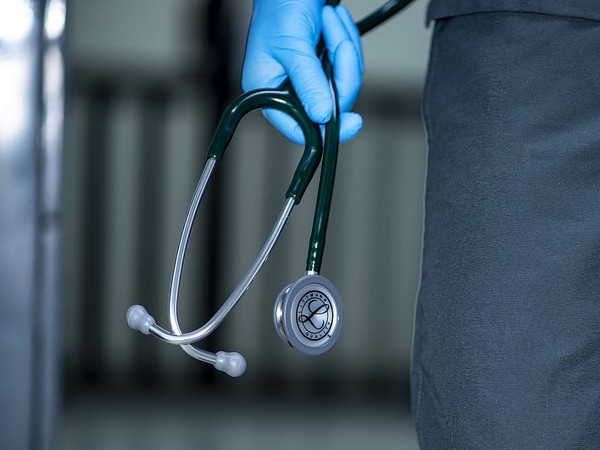Senegal's hospitals stretched as COVID infections surge
Senegal is rushing to provide more hospital beds for coronavirus patients as infections soar and a lack of capacity means doctors are only able to admit the most severe cases, health officials said. A second wave of new infections and deaths hit record highs this month, forcing President Macky Sall to reimpose a state of emergency that bans gatherings and enforces mask wearing.

- Country:
- Senegal
Senegal is rushing to provide more hospital beds for coronavirus patients as infections soar and a lack of capacity means doctors are only able to admit the most severe cases, health officials said.
A second wave of new infections and deaths hit record highs this month, forcing President Macky Sall to reimpose a state of emergency that bans gatherings and enforces mask wearing. Doctors hope that will buy authorities enough time to install new facilities and reopen health centres that were active during the first wave last year but were shuttered as cases dropped in the summer.
"The cases are rising faster than the number of beds, so we are experiencing a moment of tension," said Moussa Seydi, who runs Senegal's COVID response. A loosening of COVID-prevention measures in recent months has contributed to the increased caseload, he said. Low testing levels and a young population has until now allowed the virus to largely ghost across the West African country without the kind of carnage seen in Europe or the United States. According to Reuters data, it has recorded 21,245 infections and 465 coronavirus-related deaths since the pandemic began.
Now, a sharp rise in cases threatens to overwhelm a health system that lacks the resources of richer nations. Senegal is awaiting vaccines through the World Health Organization-backed global COVAX scheme. This programme is helping to finance deliveries to 92 developing nations with limited or no means to buy vaccines on their own.
But it does not have the capacity to store vials at ultra-low temperatures, limiting its vaccine options and putting the onus on prevention and front-line care. Inside Dakar's Fann Hospital, a quiet medical complex fenced off from busy surrounding thoroughfares, the intensive care beds are all occupied.
In one single-storey building set aside from the rest, patients in sparse rooms struggle for breath, aided by oxygen that hisses along plastic tubes, and by visits from a small team of doctors and nurses in full protective gear. "Sometimes there is fear, there is panic," said nurse Ndeye Diagne. "We are more concerned for our families than ourselves because... once we are home we are afraid to infect our families, our children."
Nearby, a multi-storey clinic with 70 rooms has been built and in March will start receiving COVID patients in a ward with an air purifying system and ventilators. In all, the country has more than 40 treatment centres, 60 intensive care beds and 300 health workers trained to deal with COVID patients.
One of the trials will be to persuade Senegal's youth to stick to the new rules. Protests broke out across Dakar when President Sall announced a curfew last week. "We all must do everything to be a bulwark against the spread of the virus and not a springboard," Seydi said. "The end of the tunnel should not be too far."
(This story has not been edited by Devdiscourse staff and is auto-generated from a syndicated feed.)
- READ MORE ON:
- COVID
- Senegal
- Macky Sall
- United States
- Europe
- West African
- COVAX
- Dakar
- World Health Organization
ALSO READ
Macron's Bold Nuclear Strategy: A New Era for Europe's Defense
European Council Endorses Lebanese Decision on Hezbollah
Europe Caught in Crossfire: Navigating the Ripple Effects of US-Israeli Tensions with Iran
France Expands Nuclear Umbrella: A Shift in European Defense
European Markets Plummet Amid Escalating U.S.-Iran Conflict










